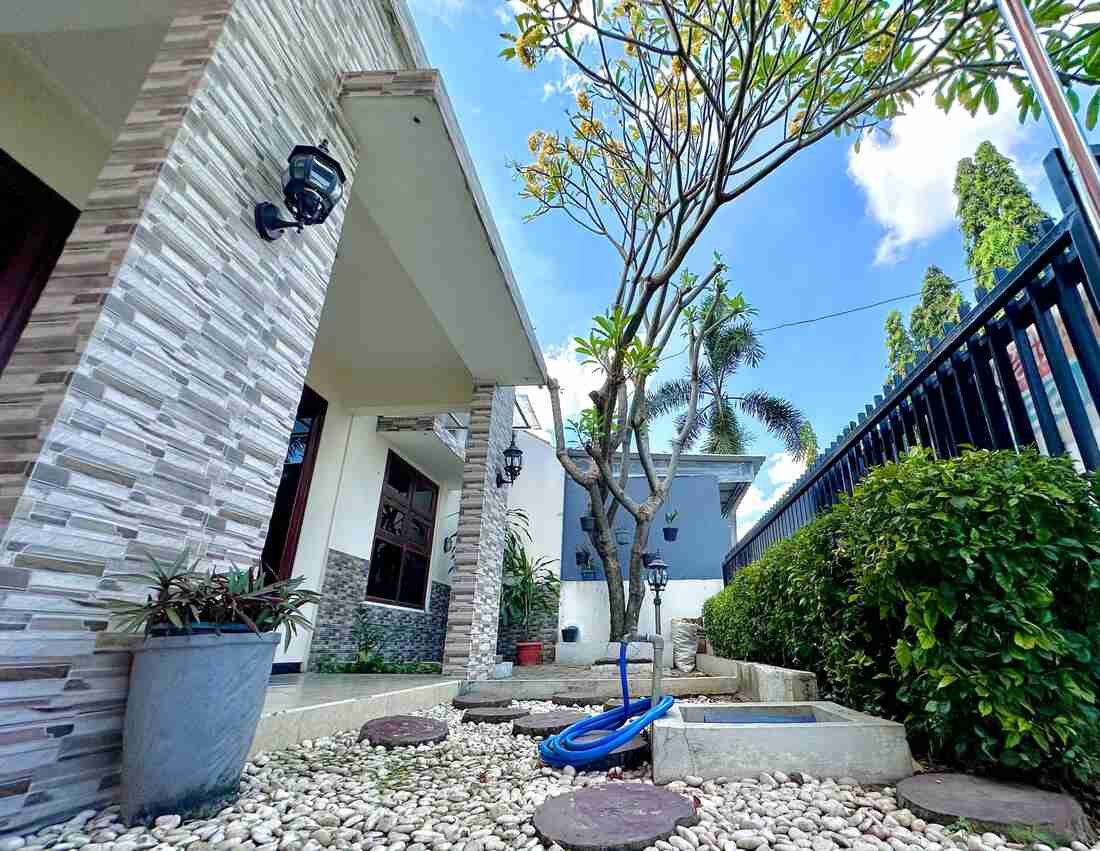Renting Guide for Owners | A Comprehensive Rental Management and Investment

Investment-Focused Renting Guide for Owners
Rental property investment can be a great way to generate passive income and build wealth over time. However, it’s important to do your research and understand the risks involved before investing. Owning a property for rental purposes involves strategic planning, effective management, and a thorough understanding of the rental market. This renting guide for owners serves as a comprehensive resource, offering valuable insights and practical tips for successful rental property management.
Renting Guide for Owners that want to do investment
Rental property investment can be a great way to generate passive income and build wealth over time. However, it’s important to do your research and understand the risks involved before investing.
1. Understanding Your Property Investment:
Before entering the rental market, it’s crucial to have a clear understanding of your property investment. Assess its location, amenities, and potential target tenant demographic. This foundational knowledge will guide your rental strategy.
Example: If your property is located in a university town, targeting students or faculty members could be a lucrative option.
Calculate your borrowing capacity without rent
When purchasing real estate, unless you have a lot of cash in your savings accounts, it is quite rare to acquire a house or apartment without going through the bank. You are certainly wondering how much you can borrow to finance the purchase of rental property and estimate the amount of your investment.
Your borrowing capacity is certainly one of the most essential elements in setting up your rental investment project. It determines the maximum amount allocated by the bank, and therefore the price of the real estate transaction that you will be able to purchase.
If in theory, buying to rent is a rather profitable investment, the bank must ensure that there is the least financial risk before deciding whether or not to grant you your financing. So how do you make your credit request and support your request to the lending organization?
First of all, know that all of your fixed income is carefully studied when you apply. If you have a personal contribution and your bank accounts are in good credit, you can be sure to more easily obtain a favorable opinion from your friendly banker!
Good to know
To calculate your borrowing capacity, banks study your debt ratio. This is an important criterion when you want to buy real estate, whether to live there or rent it. The maximum debt rate accepted is 35% in order to leave sufficient living space.
Get pre-approved for a mortgage
This will give you an idea of how much money you can borrow and what your monthly payments will be. It will also make you more competitive when bidding on rental properties.
Be prepared for unexpected expenses
Things like broken appliances and unexpected repairs can happen, so it’s important to have a financial cushion in place to cover these costs.
Already ask yourself the question of taxation
Different countries have different rules of taxation. Rental real estate investment is a tangible and profitable investment that can also benefit from tax advantages allowing you to reduce your income tax. In fact, reductions are granted on certain eligible properties in return for a rental commitment.
If you wish to obtain real estate tax exemption, you will need to acquire housing that meets the criteria defined by the government.
But not all tax systems are necessarily adapted to your personal and professional situation. Depending on your wealth objectives and your Marginal Tax Band (TMI) or the tax advantages granted, you will be more inclined towards one measure rather than another. Each has its share of advantages and disadvantages.
With a reduced savings effort, rental real estate thus has significant leverage.
And the choice of taxation results in the type of real estate that you are going to buy.
Do not seek excessive profitability and instead think “tax exemption”
Regarding profitability, it depends on several things: duration and risk.
Unsurprisingly, real estate investment is a type of long-term investment and its return is very reasonable when compared to the controlled risk it represents.
The normal or acceptable profitability for investment-focused renting can vary depending on various factors such as location, property type, market conditions, and individual financial goals. In real estate, a common metric used to assess profitability is the return on investment (ROI). ROI is calculated by dividing the net profit from the investment by the initial cost of the investment and expressing the result as a percentage.
More lucrative than precautionary savings, real estate can allow you to achieve high returns.
But do not try at all costs to buy a property solely for its profitability. A gross rental yield ranging from 3% to 8% is quite suitable.
It is better to invest in a property with average profitability, but little rental vacancy, than the opposite.
Example
Let’s say you purchase a rental property for $200,000, and after accounting for all expenses (property management fees, maintenance, property taxes, etc.), your net annual rental income is $15,000.
ROI = (Net profit/Total investment cost) x 100ROI = (15 000 / 200 000) x 100
ROI = 0.075 x 100 = 7.5%
In this example, the ROI is 7.5%. This means that for every dollar invested in the property, you’re earning a return of 7.5 cents. Investors often compare this ROI to other investment opportunities to assess the relative profitability of the real estate investment.
Keep in mind that this is a simplified example, and real estate investment involves various factors like property appreciation, potential tax benefits, and financing costs, which should be considered in a comprehensive financial analysis. Additionally, investors may use more sophisticated metrics like cash-on-cash return and internal rate of return (IRR) for a more nuanced evaluation of profitability.
Understanding Profit and Loss Statements for International Property Investments
2. Researching the Rental Market
Stay informed about the local rental market. Explore rental trends, vacancy rates, and the demand for specific property types in your area. Online platforms and real estate reports can provide valuable market insights.
Example: If the demand for two-bedroom apartments is high, consider optimizing your property to meet this demand.
Choose the right property
This is probably the most important step in the process. You need to choose a property that is in a good location, in good condition, and that will appeal to your target tenant base.
Choose carefully the city where you want to buy
As with any real estate purchase, rule No. 1 is to carefully choose the location of the property. To optimize your rental investment, you must choose a location in an area with high rental demand and where your property will increase in value over time.
Do not hesitate to choose a dynamic city with a growing demographic and to select an area close to schools, public transport and infrastructure (cultural or sporting).
Depending on the type of tenant profile that you have defined previously, you are not necessarily looking for the same location to invest.
Good plan
To further refine your project, find out about the local real estate market (by consulting online advertisements for example or a real estate agent) to get a more precise opinion on the rental demand and the rate of vacant housing in the chosen area.
You will also have an idea of the rental prices charged and will thus avoid offering a rate higher than the average, to be sure to rent your property quickly.
Also take into account the economic development of a city and its employment area. Quickly look at what major businesses or industries are present nearby. This is an interesting indicator allowing you to increase the occupancy rate of your accommodation and hope for a capital gain on resale, if necessary.
Finally, compare the rental yield offered by the different cities where you could potentially invest. The acquisition price per m²/rent ratio is in fact extremely variable from one location to another.
3. Rental management or personal management?
You must now think about the rental management of your property. Rental management includes all the steps to be taken when your tenant is in place. A successful rental investment requires optimized management of your property. You can choose to directly manage your accommodation yourself, the search for tenants, entries and exits, inventory, but this is a time-consuming activity.
If you are still hesitating between own management and delegated management, with a professional, do not hesitate to list the advantages and disadvantages of each type of management to define which one will best suit your lifestyle.
Make no mistake, managing accommodation takes time, a lot of time in fact!
The budgetary aspect often leads owners to carry out these various tasks themselves, under the guise of increasing their rental yield. However, be aware that even if the remuneration for the services of a management company is high, it is not the only element to take into consideration.
If you already work a lot, know that you will surely be even more overwhelmed, because the workload linked to the management of real estate and its various difficulties inevitably encroach on your private life. Real estate rental management is a practice requiring particular expertise (collection of rents, issuance of receipts, repairs, regularization of charges, tax declaration of rental income, etc.).
Hire a good property manager
A good property manager can handle all of the day-to-day tasks associated with renting out your property, such as finding tenants, screening tenants, and collecting rent. This can free up your time and allow you to focus on other aspects of your investment.
Put your property under management in a real estate agency
A real estate agency will relieve you of the rental procedures and management interventions. She is also responsible for recovering any debts. His fees generally represent 6 to 10% of the rent amount including charges. This can be very advantageous, especially if you are not there. Furthermore, these costs are deductible from your property income.
4. Setting Competitive Rental Rates
Determine competitive rental rates by considering factors like property features, location, and market demand. Pricing your property appropriately attracts potential tenants while ensuring you receive fair returns on your investment.
Example: If similar properties in your area offer additional amenities, consider adjusting your rental rate accordingly.
A Quick Guide
- Check Local Prices:
- Look at similar properties nearby to determine the average rent.
- Know Your Property’s Value:
- Consider your property’s features and condition to assess its value.
- Calculate Costs:
- Add up all expenses, including maintenance, insurance, and property taxes.
- Decide on Your Profit:
- Set a rental rate that covers costs and provides the desired profit.
- Stay Competitive:
- Regularly check local market rates and adjust your rent if needed.
Example Calculation:
5. Property Marketing Strategies
As an investment-focused landlord, your goal is to find high-quality tenants who will pay rent on time and take care of your property. To do this, you need to market your property effectively.
Effectively market your rental property to attract quality tenants. Utilize online platforms, professional photography, and compelling property descriptions to showcase its unique features.
Example: Highlight the property’s key selling points, such as a spacious backyard or modern kitchen appliances, in your marketing materials.
To find high-quality tenants for your investment property, you need to market it effectively. Here are a few tips:
- Take high-quality photos and write a detailed property listing.
- List your property on popular rental websites and advertise in local media.
- Offer a referral bonus to your current tenants.
- Work with a real estate agent.
- Price your property competitively and be responsive to inquiries.
- Be prepared to negotiate and screen your tenants carefully.
6. Tenant Screening and Selection
Implement a thorough tenant screening process to ensure you select reliable and responsible tenants. Check references, verify income, and conduct background checks to minimize potential issues.
Example: If a potential tenant has a consistent rental history and positive references, it indicates a higher likelihood of a positive tenancy.
How to screen tenants
There are a number of different ways to screen tenants. Here are a few tips:
- Check their credit history. This will give you an idea of their financial history and ability to pay rent.
- Check their references. Contact their previous landlords and employers to get an idea of their rental history and work ethic.
- Verify their employment status. Ask for a copy of their paystub or W-2 form.
- Conduct a criminal background check. This is not required by law, but it can be a good way to identify any potential red flags.
How to select a tenant
Once you have screened a number of tenants, it is time to select one. Here are a few factors to consider:
- Income. Make sure that the tenant has enough income to cover the rent and other expenses.
- Rental history. Look for a tenant with a good rental history. This means that they have paid their rent on time and taken care of the property they have rented in the past.
- References. Ask the tenant to provide you with references from their previous landlords and employers.
- Gut feeling. Sometimes, you just have a good feeling about a tenant. If you do, go with your gut.
Tips for successful tenant screening and selection
Here are a few tips for successful tenant screening and selection:
- Be clear about your expectations. Before you start screening tenants, make a list of your expectations. This includes things like income requirements, rental history requirements, and pet policy.
- Be consistent. Apply the same screening criteria to all tenants. This will help to ensure that you are fair and impartial.
- Be professional. When screening tenants, be professional and respectful. This will help to create a positive first impression.
- Don’t rush the process. Take your time to screen tenants carefully. It is better to take a few extra days to find the right tenant than to rush the process and end up with a bad tenant.
Transparency in Real Estate, Accommodation, and Rental Businesses
7. Lease Agreements and Legal Considerations:
Craft clear and comprehensive lease agreements that outline terms, responsibilities, and legal considerations. Familiarize yourself with landlord-tenant laws in your area to ensure compliance.
Example: Specify maintenance responsibilities and outline procedures for addressing repairs to avoid confusion during the tenancy.
Stay up-to-date on the latest laws and regulations
Fair housing laws and landlord-tenant laws vary from state to state and country to country, so it’s important to stay up-to-date on the latest requirements in your area. This will help you to avoid any legal issues down the road.
What to include in a lease agreement
Your lease agreement should include the following information:
- Names and contact information of the landlord and tenant
- Property address
- Lease term
- Rent amount and due date
- Security deposit amount
- Tenant’s responsibilities
- Landlord’s responsibilities
- Termination terms
Legal considerations
There are a number of legal considerations that you need to be aware of when renting out your property. These include:
- Fair housing laws. Fair housing laws prohibit landlords from discriminating against tenants on the basis of race, color, religion, national origin, sex, familial status, or disability.
- Security deposit laws. Security deposit laws vary from state to state. In general, landlords are limited in how much they can charge for a security deposit and how they can use the security deposit.
- Eviction laws. Eviction laws also vary from state to state. In general, landlords must follow certain procedures before they can evict a tenant.
Tips for creating a valid lease agreement
Here are a few tips for creating a valid lease agreement:
- Use a standard lease agreement form. There are many standard lease agreement forms available online and in law libraries. These forms are a good starting point, but you should be sure to review them carefully and make any necessary changes to fit your specific situation.
- Have your lease agreement reviewed by an attorney. An attorney can help you to ensure that your lease agreement is valid and enforceable.
- Get everything in writing. All of the terms of the rental agreement, including the rent amount, the lease term, and the tenant’s responsibilities, should be in writing. This will help to avoid any disputes down the road.
By following these tips, you can create a valid lease agreement that will protect your rights as a landlord.
8. Maintenance and Property Upkeep:
Regular maintenance is crucial for tenant satisfaction and property value. Establish a maintenance schedule and promptly address any repairs to uphold the property’s appeal.
Example: Conduct seasonal maintenance checks, such as gutter cleaning and HVAC system inspections, to prevent issues before they arise.
As an investment-focused landlord, it is important to keep your property in good condition. This will help to attract and retain tenants, and it will also protect your investment.
Keep your property in good condition
This includes making regular repairs and updates, as well as maintaining the curb appeal of your property. A well-maintained property is more likely to attract and retain good tenants.
Types of maintenance
There are two main types of maintenance: preventive and corrective.
- Preventive maintenance: This is the type of maintenance that is done to prevent problems from happening in the first place. Examples of preventive maintenance include changing air filters, cleaning the gutters, and having the HVAC system inspected and serviced regularly.
- Corrective maintenance: This is the type of maintenance that is done to fix problems that have already occurred. Examples of corrective maintenance include repairing a leaky faucet, fixing a broken appliance, and replacing a damaged roof shingle.
How to budget for maintenance
It is important to budget for maintenance when you are renting out your property. A good rule of thumb is to budget 1-2% of the property’s value for maintenance each year. This will help you to cover the costs of both preventive and corrective maintenance.
How to handle maintenance requests
When tenants submit maintenance requests, it is important to respond promptly. This shows that you are a responsive landlord and that you care about your property.
If the maintenance request is for something minor, such as a leaky faucet, you may be able to handle it yourself. However, if the maintenance request is for something more serious, such as a broken appliance, you should hire a professional.
Tips for maintaining your property
Here are a few tips for maintaining your property:
- Inspect your property regularly. This will help you to identify any potential problems early on.
- Keep a maintenance log. This will help you to track maintenance requests and expenses.
- Hire qualified professionals for major repairs. This will help to ensure that the repairs are done correctly and that your property is protected.
By following these tips, you can keep your property in good condition and protect your investment.
9. Handling Tenant Concerns and Communication:
Establish open communication with tenants to address concerns promptly. Clear communication fosters a positive landlord-tenant relationship, contributing to tenant satisfaction and retention.
Example: If a tenant reports a maintenance issue, acknowledge their concern promptly and communicate the steps being taken to resolve it.
Build relationships with your tenants
Getting to know your tenants can help to create a more positive and productive relationship. Be responsive to their needs and concerns, and go the extra mile when possible. This will help to build trust and loyalty, which can lead to longer-term tenancies and less turnover.
Effective communication is essential for any successful landlord-tenant relationship. It is important to be responsive to tenant concerns and to communicate with them in a clear and concise manner.
How to handle tenant concerns
When a tenant comes to you with a concern, it is important to listen carefully and to show empathy. Try to understand their perspective and to see things from their point of view.
Once you have understood the tenant’s concern, you can start to work on a solution. Be sure to communicate with the tenant regularly throughout the process and to keep them updated on your progress.
If you are unable to resolve the tenant’s concern, be sure to explain why. Be honest and transparent with the tenant.
How to communicate with tenants
Here are a few tips for communicating with tenants:
- Be clear and concise. Avoid using jargon or technical language.
- Be respectful. Treat tenants with respect, even if you disagree with them.
- Be responsive. Respond to tenant concerns promptly.
- Be professional. Avoid using emotional language or making personal attacks.
- Be consistent. Be consistent in your communication with tenants. Apply the same rules and expectations to all tenants.
Tips for handling difficult tenants
Unfortunately, there may be times when you have to deal with a difficult tenant. Here are a few tips:
- Stay calm. It is important to stay calm and professional, even if the tenant is being difficult.
- Don’t take it personally. It is important to remember that the tenant’s behavior is not a reflection of you.
- Document everything. Keep a record of all communications with the tenant, including emails, phone calls, and in-person conversations.
- Enforce your lease agreement. If the tenant is violating the lease agreement, take the appropriate action.
- Seek legal advice. If you are unsure of how to handle a difficult tenant, seek legal advice from an attorney.
By following these tips, you can effectively communicate with tenants and handle tenant concerns. This will help you to maintain a positive relationship with your tenants and to protect your investment.
10. Here are some additional tips for success for investment-focused renting guide for owners
- Be patient. It takes time to build a successful rental investment portfolio. Don’t expect to get rich quick.
- Be flexible. The rental market is constantly changing, so be prepared to adapt your strategy as needed.
- Be professional. Treat your tenants with respect and provide them with a good rental experience. This will help you attract and retain good tenants.
Rental investment can be a great way to achieve your financial goals, but it’s important to be prepared and do your research before you get started.
Renting Guide for Owners | A Comprehensive Rental Management and Investment
Additional Tips:
- Consider your target tenant base. Who are you trying to rent to? Families, young professionals, retirees? Once you know your target tenant base, you can choose a property and location that will appeal to them.
- Do your due diligence on the property. Get a home inspection to identify any potential problems. You should also research the crime rate in the area and the condition of the local schools.
- Set realistic rent prices. You want to charge enough rent to cover your costs and make a profit, but you don’t want to price yourself out of the market.
- Screen your tenants carefully. Check their credit history, references, and employment status.
- Be a good landlord. Respond to maintenance requests promptly and be respectful of your tenants’ privacy.
Photo credit: R-region via Pixabay





